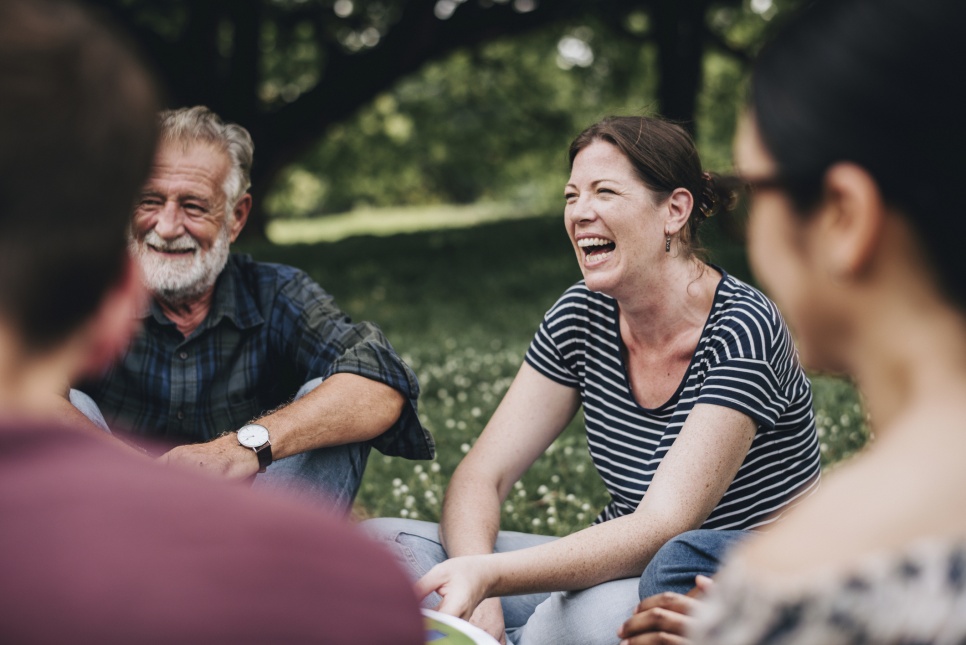General
Create a greeting and farewell which uses the Welsh language playfully. This could mean creating new words or using different combinations of proposed words.
Build on the group's collective vocabulary and recite optional words regularly.
Create a vocabulary resource for participants, with the participants. This could be a vocabulary of words, movements, images or sounds.
Use a 'language sandwich' when speaking. (Welsh, English, Welsh)
Use Welsh words consistently instead of English. Suggestion of 3 new words in each session.
Use a disruption strategy by introducing Welsh phrases to spark a different way of thinking. (Introducing a Welsh idea, word, phrase during an activity)
Combine arts to create a product or activity.
Create relaxed and safe spaces to speak in / with Welsh while co-creating art. This works well with visual art, crafting, writing etc.
Word games
The purpose of these games is to remove the fear from the thought of speaking the Welsh language, to raise confidence by being playful, to co-create with participants and to make the use of the language fun.
Hide an object with a Welsh name. Several challenges or games can take place from this action. What matters is that the Welsh names of the objects will be used.
Use a word within an activity. Individuals could be given unexpected words and given a challenge to use the word during an activity.
Use a 'do word / silly word' during an activity. The challenge could be taken a step further by setting a task for the rest of the group to identify the word.
Bring three words to the workshop. Invite participants to bring words to the workshop and create with those words.
Create Welsh words to use during a session. To be playful with the language, create new Welsh words with the group. These can be greetings / instructions / names / adjectives / verbs etc.
Language detective. Several games are possible with this activity by discovering/matching an object/place/sound to a word.
Whispering words / stories in a group. You can play with the method by using made up words / translating words alternately / using sounds / movements etc
Co-discover words by examining the external environment and discovering names or words that accompany the object. This is good exercise in nature.
Instruct the group with your back to them. This is a fun and practical exercise to develop language use. It can apply to any art.
Share descriptive words (or sounds) as a response to art or actions. This approach can be used with any creative form but lends itself well to music and visual art.
Build on the vocabulary of responding gradually through repetition and encouragement.
Language sounds (letters) games
The Welsh alphabet and the sounds of the language can be challenging for some. The purpose of these exercises is to raise the confidence of using and producing the sounds of the Welsh language by being playful. The word games can be adapted into language sounds games as well as the suggestions below.
These methods come from exercises in language usage training through movement, dance and music. A wealth of art approaches are possible from the suggestions.
Welsh consonants.
Produce resonances and sounds from the consonants of the Welsh alphabet. Have fun using them creatively. Try composing, recording, visualising these sounds and play with them through movement and role play exercises.
Welsh vowels.
Produce vowel sounds individually and collectively. Have fun using them creatively. Try composing, recording, visualising these sounds and play with them through movement and role play exercises.
Have a conversation using Welsh letters. You can turn a conversation into a scene/situation/artwork.
Create a Picture of sound.
A creative response to the sound of letters in the body / creating a shape, movement, colour or picture.
Exploring sounds.
Everyone responds differently to sounds. Explore sound creation through the body and in the mouth. Respond to the resonances and sound through movement, writing, painting, drawing, music, emotion.
Create words from the sounds.
Increase confidence by combining sounds to create new words.

